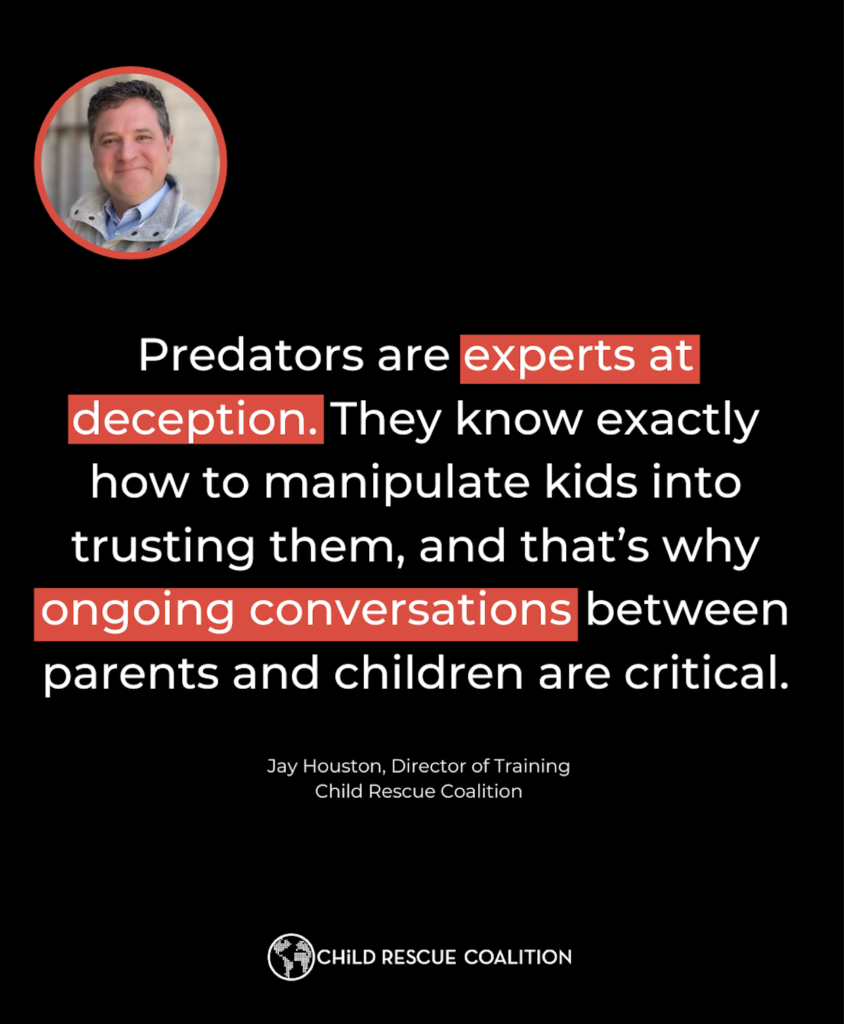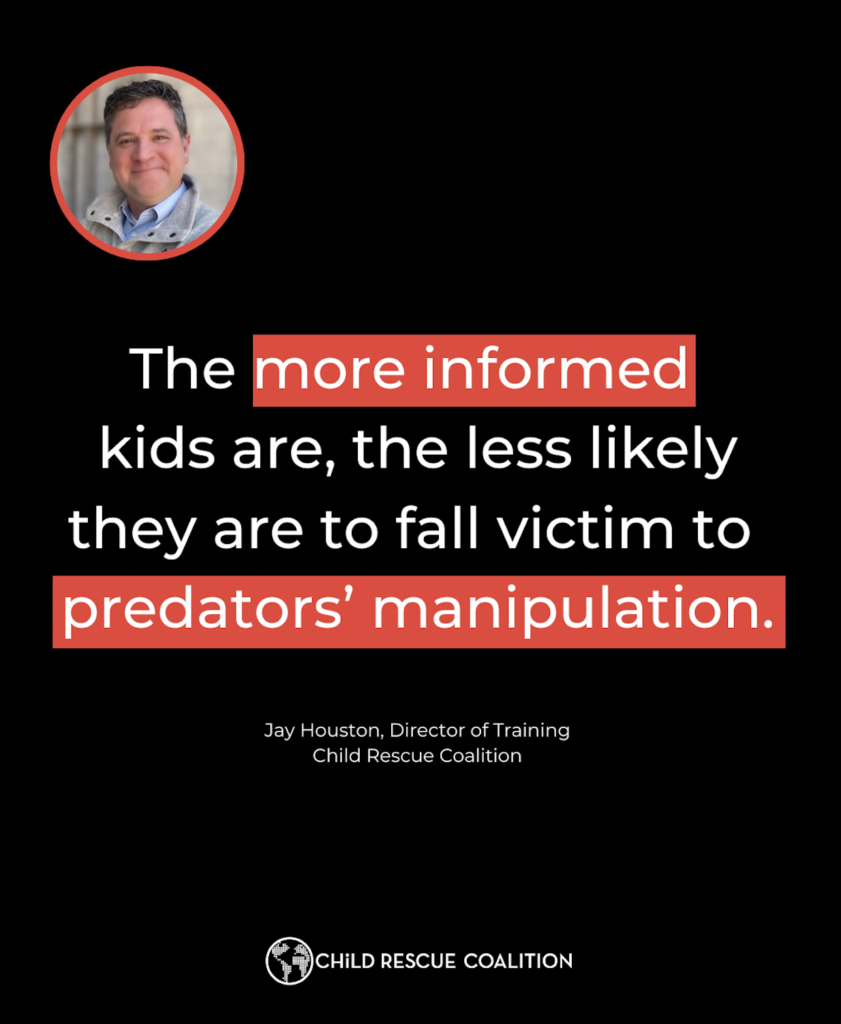How Predators Disguise Themselves Online
The internet is part of everyday life for kids—it’s where they learn, socialize, and explore. But just as in the real world, not everyone online has good intentions. Predators use deception and manipulation to target children, often hiding behind fake identities to build trust before making harmful requests.
According to Jay Houston, Director of Training at Child Rescue Coalition, “Predators are experts at deception. They know exactly how to manipulate kids into trusting them, and that’s why ongoing conversations between parents and children are critical. The more informed kids are, the less likely they are to fall victim to these tactics.”
Jay emphasizes that communication is the most powerful tool parents have in protecting their children online. By staying involved and setting clear boundaries, families can create a safer digital environment.
The Ways Online Predators Operate
🔹 Fake Identities – Predators hide behind fake names, photos, and ages, often stealing pictures from other accounts to appear more believable. They may pretend to be a peer, influencer, or mentor to gain trust.
🔹 Building Trust – Compliments, constant attention, and emotional validation are common tactics. Predators make kids feel special, creating a bond before making inappropriate requests. They may also convey a sense of urgency, pressuring kids to share personal information or share photos and videos quickly, before they have time to think it through or change their mind.
🔹 Gathering Personal Information – They ask seemingly harmless questions about hobbies, school, and location to piece together details about a child’s life.
🔹 Requesting Explicit Content – Many predators ultimately pressure kids into sending photos or videos, often using manipulation or threats to keep them silent.
What Parents Can Do to Protect Kids
🚨 The #1 Rule: TALK TO YOUR KIDS.
Having open, judgment-free conversations is the best defense against online exploitation. Talk about sextortion, online dangers, and let kids know
they can always come to you—without fear of getting in trouble.
🔒 Set Accounts to Private
Ensure your child’s social media and gaming profiles are private, not public. This prevents strangers from accessing their information.
⏸️ Pause Before Posting
Teach kids to think before they share—no personal details like full names, schools, or locations should be made public.
🚫 The Golden Rule: NEVER Send a Nude
No one should ever ask for or expect this. Make sure your child knows:
If someone pressures you, tell a trusted adult immediately. We will NOT be mad at you. We are here to help.
Believe & Support Your Kids
Online predators rely on secrecy. The best way to keep kids safe is by being a trusted, open resource for them. Let them know they are never alone, and their safety comes first—always.
Have the conversation, set boundaries, and build trust. Together, we can protect kids online.



